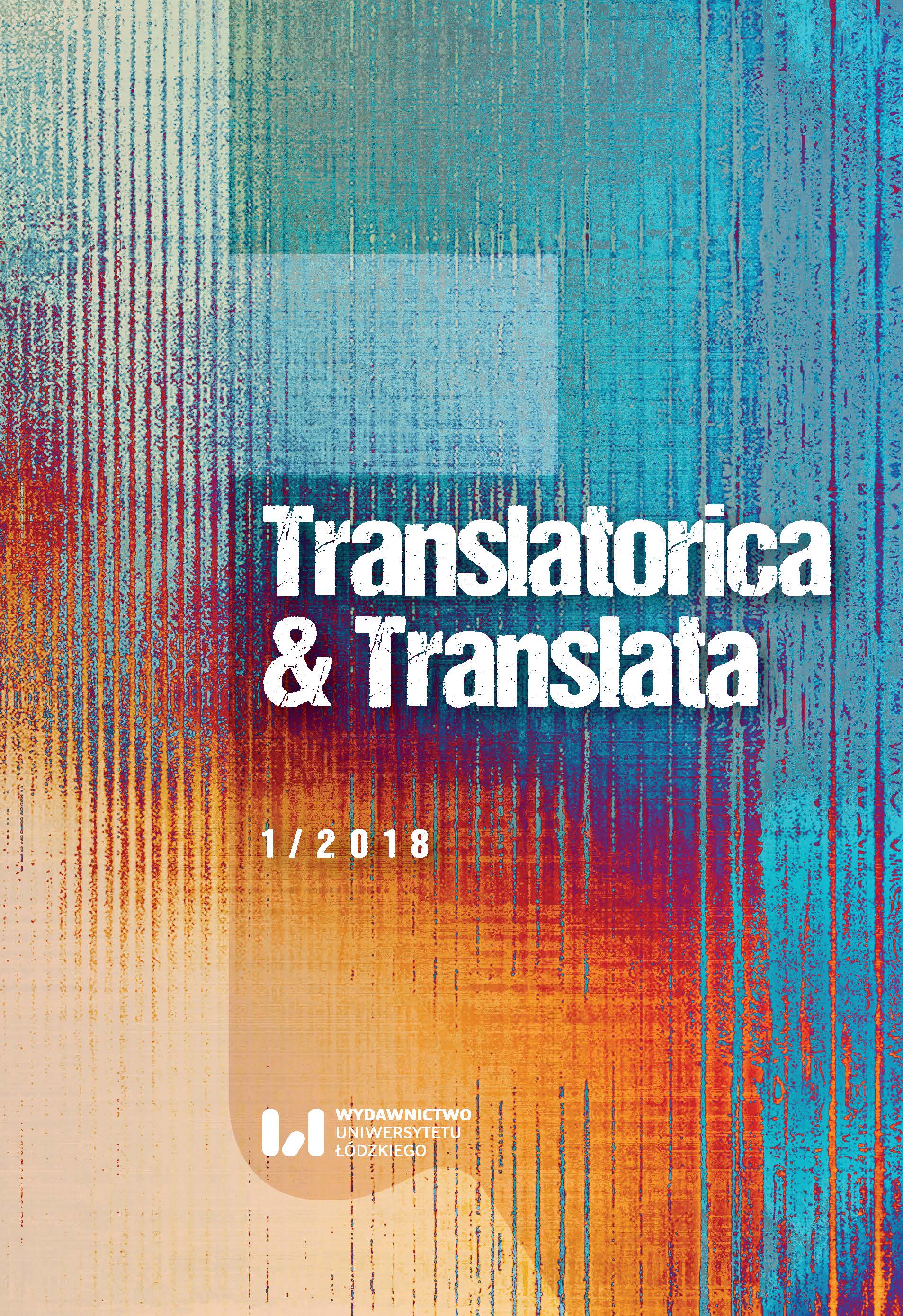How Church doctrine could influence the Bible – a case study of Bible verses concerned with Eucharistic theology
DOI:
https://doi.org/10.18778/2544-9796.01.07Keywords:
doctrine, Eucharist, Bible, translation, Reformation, CounterreformationAbstract
The aim of the article is to show that the wording of certain verses in Bible translations may have been shaped to suit the doctrine of those branches of Christendom which produced these translations. This will be done with the use of versions of certain of the verses from the New Testament to which relates the Catholic doctrine of the Eucharist, as the form and meaning of these verses have been battlegrounds of a theological struggle between Catholics and Protestants – most violent during the time of the Protestant Reformation. In the research I used two most important Polish translations of the New Testament made in the age of the Reformation: the Protestant Biblia Gdańska (1606) and the Catholic Biblia Jakuba Wujka (1599).
References
Bingham J., 1844, The antiquities of the Christian Church, Henry G. Bohn, London.
Google Scholar
Calvin J., 1960, Institutes of the Christian religion, The Westminster Press, Philadelphia.
Google Scholar
Crehan F.J., 1963, The Bible in the Roman Catholic Church from Trent to the present day, [w:] S.L. Greenslade (red.), The Cambridge history of the Bible: volume three – the West from the Reformation to the present day, Cambridge University Press, s. 199–237.
Google Scholar
Jurgens W.A., 1979, The faith of the early fathers: volume three – a sourcebook of theological and historical passages from the writings of Saint Augustine to the end of the Patristic Age, The Liturgical Press, Collegeville.
Google Scholar
Kronenfeld J., 1998, King Lear and the naked truth: rethinking the language of religion and resistance, Duke University Press, Durham and London.
Google Scholar
Lindberg C. (red.), 2000, The European reformations sourcebook, Blackwell Publishers, Oxford.
Google Scholar
Marion J.L., 1996, Bóg bez bycia, Znak, Kraków.
Google Scholar
Müller G.L., 2015, Dogmatyka katolicka, WAM, Kraków.
Google Scholar
Nida E., 2001, Principles of correspondence, [w:] L. Venuti & M. Baker (red.), The Translation Studies reader, Routledge, London and New York, s. 126–140.
Google Scholar
Reynolds H.R., c. 1890, The pulpit commentary: the Gospel of John, Funk & Wagnalls Company, New York and Toronto.
Google Scholar
Schaff P. (red.), 1887, A select library of the Nicene and Post-Nicene fathers of the Christian Church: volume five – Saint Augustin: anti-Pelagian writings, The Christian Literature Company, New York.
Google Scholar
The English College at Dovvay, 1635, The Holy Bible, Iohn Covstvrier, Reuen.
Google Scholar
Novvy Testament pana naszego Jezusa Chrystusa, 1606, Drukowano u Wdowy Guilhelma Guilmothana, Gdańsk.
Google Scholar
Wujek J., 1599, Biblia to iest księgi Starego y Nowego Testamentv, Drukarnia Łazarzowa, Kraków.
Google Scholar
Baranowski M. (oprac.), [bdw], Katechizm Kościoła katolickiego, http://www.katechizm.opoka.org.pl/rkkkII-2-1.htm (dostęp: 23.02.2017).
Google Scholar
The Council of Trent 1542–1564, The canons and decrees of the Council of Trent, http://www.ewtn.com/library/COUNCILS/TRENT.ZIP (dostęp: 9.05.2016).
Google Scholar
Pietkiewicz R., 2004, Biblia Tysiąclecia w tradycji polskiego edytorstwa biblijnego, rozprawa doktorska, Papieski Wydział Teologiczny we Wrocławiu, http://digital.fides.org.pl/dlibra/doccontent?id=730 (dostęp: 9.05.2016).
Google Scholar
Pietkiewicz R., 2009 (2002), Pismo Święte w języku polskim w latach 1518–1638: sytuacja wyznaniowa w Polsce a rozwój edytorstwa biblijnego, rozprawa doktorska, Uniwersytet Wrocławski, http://digital.fides.org.pl/dlibra/docmetadata?id=728&dirds=1&tab=2.
Google Scholar
Downloads
Published
How to Cite
Issue
Section
License

This work is licensed under a Creative Commons Attribution-NonCommercial-NoDerivatives 4.0 International License.








